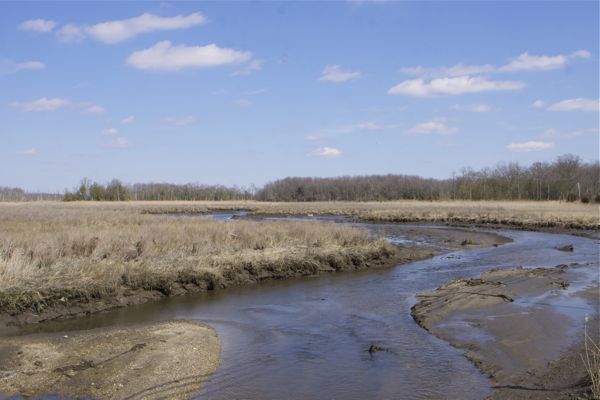Delaware Bayshore Regional Plan Ignored by Major Funder & ENGO’s
Snatching Defeat From the Jaws of Victory
Just As Consensus Emerges on Regional Plan, Funds Go Elsewhere
Bayshore Region, Denied Sandy Recovery Funds, Neglected Again
There will be no well funded public campaign to develop a regional plan for the Bayshore region.
Tragically, that disappointing news comes at precisely the time that the people and governments of the region have reached consensus on a regional vision and regional recovery plan, and are begging for money to implement that plan.
Here’s the sad story of how that came about.
A few years back, I was part of an effort to craft an analysis of environmental planning and regulatory programs that could be integrated to better protect the Delaware Bayshore region.
That led to a superb June 2010 Report, funded by the William Penn Foundation:
The strategy behind that exercise was to take the first step toward building public awareness, a sense of the region at risk, and consensus necessary to support the creation of a regional planning body – akin to the Highlands Council and Pinelands Commission – for the Delaware Bayshore. (see also:
That was one reason the Report focused so heavily on threats to the region and an inventory of governmental planning and regulatory tools that were not being effectively coordinated or aggressively implemented.
Our hope was to create a similar dynamic that emerged from the US Forest Service Report on the Highlands. That Report documented threats of build out development allowed under local zoning. When people realized the cumulative impacts of local controls, that effectively created the need for a regional entity that would over-ride those local plans and protect the region.
We were cognizant of the political history that led to the Highlands Act. In that case, there were groups working on voluntary measures and local initiatives, including an effort to have Highlands towns adopt resolutions supporting recognition of the region in the toothless State Plan.
Those voluntary efforts were ineffective.
Bypassing those groups’ lame efforts, a core of leaders emerged (you know who you are) that saw an opportunity to work with the McGreevey Administration and enact meaningful protections. Those efforts – opposed by the “weenies” working on voluntary toothless efforts – led to passage of the Highlands Act.
We had hoped to replicate those efforts, bypass the weenies again, and put together the funding for a campaign for a regional entity.
Well, we failed. The weenies won. Here’s how.
Our June 2010 Report must have scared the hell out of folks, because shortly after its release, instead of: 1) followup funding to support our campaign, 2) shifting the public awareness and media focus, and 3) catalyzing consensus on a the need for a regional planning entity and/or stronger enforcement of state environmental laws; we precipitated retreat.
That retreat from regional planning and regulation has now been memorialized.
Ironically, the retreat comes at precisely the time that the Bayshore region, in the wake of Sandy, has initiated and developed its own consensus on the need for a regional planning effort.
The Bayshore region, hard hit by Sandy, was totally ignored by the Christie Administration and received virtually no Sandy recovery money. That neglect catalyzed the need for the people of the region to seize control of their own destiny.
Just weeks ago, the towns and counties in the Bayshore region did just that and released their own planning report:
That plan establishes the sense of the region, a consensus planning vision, and virtually begs for funding for a host of well thought out initiatives.
But instead of funding those initiatives, the William Penn Foundation just spent $35 million elsewhere – on the weenies and voluntary weeny programs.
This program will not lead to mandatory efforts that achieve measurable water quality improvements.
It’s more of the voluntary and public education that provides cover for state and federal regulators to ignore federal Clean Water Act requirements (and for pollution sources to escape public and regulatory accountability).
To the weenie faction, laws and government planning and regulatory programs are now obsolete.
Like I said, they snatched defeat from the jaws of victory.
And I don’t think that was an accident.
I think the focus of Penn and the weenies intentionally undermined any effort to fight for a regional planning entity, just like the same weenies opposed the Highlands Act. And for the same selfish organizational funding reasons.
